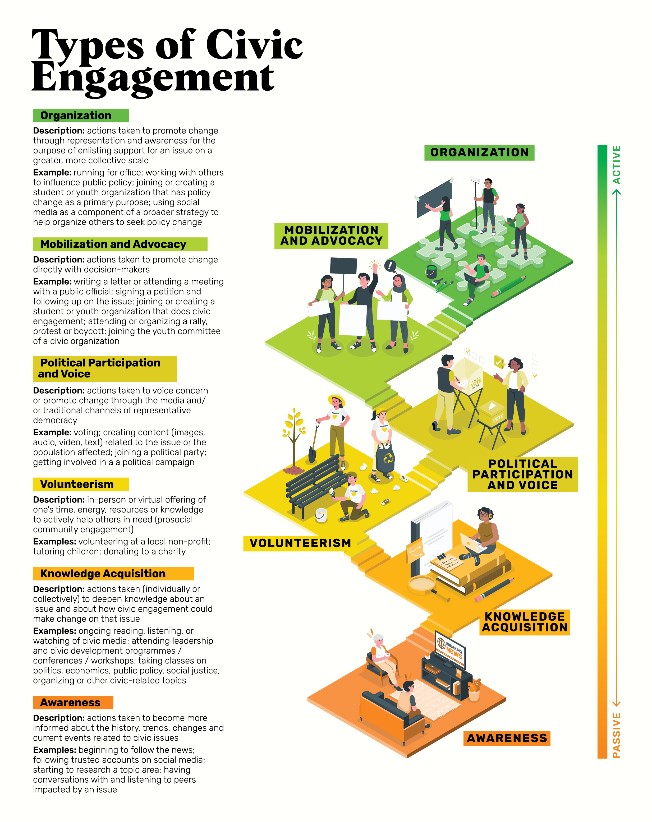In the bustling streets of Egypt, where history echoes through ancient monuments, a new generation is emerging, eager to shape the future of their nation. Yet, the path to active civic engagement for many young Egyptians is strewn with barriers that hinder their participation in the democratic processes that underpin society.
Let’s begin by understanding what civic engagement entails. It’s not just a lofty term; it’s about people actively participating in the decisions that affect their lives, be it through voting, community involvement, or advocating for social change. According to the Arab Youth Survey, while the majority of young Egyptians express a desire for more political influence, many face barriers that limit their active engagement.
One prominent challenge is the perception of political disempowerment. A survey conducted by the Population Council in Egypt found that a considerable portion of young people feel their voices are not heard in matters of public concern. This perceived lack of influence can be a significant deterrent to active civic participation, as many young individuals may question the impact of their engagement.

Moreover, navigating the complex landscape of political structures and processes poses a barrier for many young Egyptians. The intricacies of government systems and the bureaucratic maze can be daunting, especially for those who are new to the realm of civic engagement. According to the Arab Youth Survey, a notable percentage of young Egyptians express dissatisfaction with their country’s political system, indicating a need for greater understanding and transparency.
Economic factors also play a role in hindering civic engagement. Many young Egyptians face economic challenges that consume much of their time and energy, leaving little room for active participation in civic activities. The Arab Youth Survey highlights concerns about economic stability and job opportunities as key priorities for young Egyptians, indicating that addressing economic challenges is crucial to fostering greater civic engagement.
Breaking these barriers requires a multi-faceted approach. One key element is education. Introducing civic education in schools can equip young Egyptians with the knowledge and skills needed to navigate the political landscape. It can demystify political processes, empowering them to understand how their participation can bring about meaningful change.
Furthermore, efforts to enhance transparency and accessibility in political systems are crucial. According to a report by the International Foundation for Electoral Systems (IFES), providing accessible information about political processes and candidates can increase voter engagement. Digital platforms and social media, widely used by young Egyptians, can serve as effective tools for disseminating information and fostering dialogue.
Creating spaces for open dialogue and community involvement is another essential aspect. According to the Arab Youth Survey, a significant percentage of young Egyptians view social media as a positive force for societal change. Leveraging these platforms to facilitate discussions and engage with civic issues can bridge the gap between young people and traditional political structures.
Additionally, addressing economic challenges can remove a significant barrier to civic engagement. Initiatives that focus on creating economic opportunities for young people, providing job training, and supporting entrepreneurship can empower them to actively participate in civic activities without the burden of economic instability.
Encouraging the participation of young women in civic engagement is a crucial aspect of creating an inclusive and representative democracy. According to the World Bank, while there has been progress in women’s political participation in Egypt, challenges such as traditional gender roles and stereotypes persist. Efforts to challenge these norms and create an environment where young women feel empowered to engage in civic activities are essential for building a more equitable society.
In conclusion, the journey towards active civic engagement for Egyptian youth is marked by challenges, but it is also brimming with potential. By addressing perceptions of disempowerment, providing civic education, enhancing transparency, and creating economic opportunities, Egypt can pave the way for a new generation of empowered and engaged citizens. As the youth of Egypt step into the forefront of shaping their nation’s future, breaking down barriers to civic participation becomes not just a necessity but a collective commitment to building a more vibrant and participatory democracy.